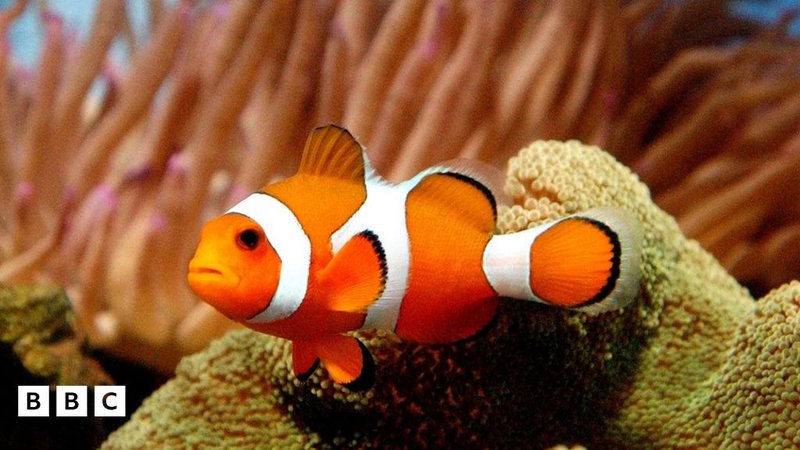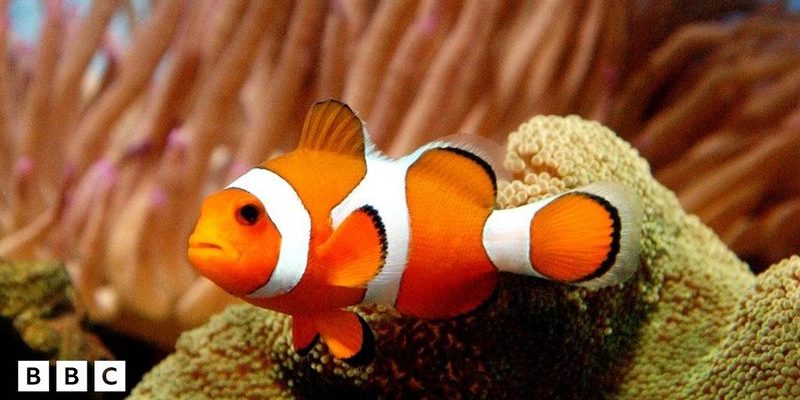
Imagine the coral reefs as bustling cities filled with life, where clownfish play their part. But now, these cities are facing some serious challenges. Warmer waters, acidification, and habitat loss are not just phrases from a science textbook; they’re real threats to these charming little fish and the ecosystems they thrive in. So, let’s dive in and explore how climate change is reshaping the lives of clownfish.
The Basics of Climate Change and Its Impact on Oceans
Climate change refers to long-term shifts in temperatures and weather patterns. While natural cycles have caused climate changes before, human activities—like burning fossil fuels—are speeding up the process. This causes our planet to heat up, leading to a host of problems, especially in our oceans.
As temperatures rise, the ocean absorbs a significant amount of heat, leading to warmer waters. This might sound nice on a beach day, but for marine life, it can be disastrous. Warmer water affects the delicate balance of marine ecosystems, including the habitats where clownfish live. Think of it like adjusting the thermostat in your living room; if it gets too hot, it becomes uncomfortable, and eventually, you might want to leave that space altogether.
The extra warmth also leads to coral bleaching. Corals, the backbone of clownfish habitats, expel the algae that give them color and food when stressed. Without this algae, corals turn white and struggle to survive. This is a critical concern because clownfish depend on these corals for shelter and breeding grounds. Without a stable home, clownfish populations could decrease significantly, impacting marine biodiversity.
Coral Bleaching: A Clownfish Crisis
Coral bleaching is a major issue tied to climate change. When corals are stressed due to rising temperatures, they expel the tiny algae living in their tissues. This algae is crucial because it provides food for the corals through photosynthesis. Without it, corals become weak and vulnerable to disease.
Think of corals like a buffet for clownfish. If the buffet closes, the clownfish have nowhere to go for food and shelter. This means they may face challenges finding mates and raising their young. Clownfish rely on healthy coral reefs not just for home but also for survival. If these reefs can’t bounce back from bleaching events, the clownfish populations will dwindle.
Moreover, when reefs die off, other marine life that depends on corals for survival also suffers, leading to a broader ecological imbalance. The interconnectedness of marine life means that losing one species, like clownfish, can have a ripple effect throughout the entire ecosystem.
Ocean Acidification and Its Effects
Another impact of climate change is ocean acidification. As the atmosphere warms, the ocean absorbs more carbon dioxide (CO2). When CO2 dissolves in seawater, it forms carbonic acid, which lowers the pH of the ocean. Essentially, this means the water is getting more acidic, which can severely affect marine life.
The problem with increased acidity is that it affects organisms like corals and shellfish that rely on calcium carbonate to build their structures. For clownfish, this means their homes could deteriorate faster than they can reproduce and establish new colonies. Imagine a house made of sand that washes away with every tide—this is what could happen to the coral structures clownfish depend on.
Moreover, the stress from acidification can impact clownfish behavior. Studies suggest that clownfish exposed to more acidic conditions may have trouble navigating their environment. They rely on scent cues to find their way around and to detect predators. If their senses are dulled, they become more vulnerable. This not only threatens their individual survival but also the stability of their populations.
Rising Sea Levels: A New Challenge
Rising sea levels are another consequence of climate change that impacts clownfish habitats. As polar ice melts and ocean waters expand due to heating, coastal areas are increasingly vulnerable to flooding. This may lead to the loss of shallow reef areas where clownfish thrive.
Imagine if your cozy home was suddenly submerged. Clownfish face a similar fate as their habitats erode or are overtaken by land development. These changes can push clownfish further out to sea, away from their natural coral homes, making it harder for them to find shelter and food.
Furthermore, increased human activity in coastal areas can lead to pollution and alterations in water quality. These factors further complicate the lives of clownfish and push them into competition for dwindling resources, making survival even more daunting.
The Role of Conservation Efforts
Despite the challenges clownfish face, hope isn’t lost. Various conservation efforts aim to protect coral reefs and the delicate ecosystems they support. Project-based initiatives involve restoring damaged reefs and protecting coastal areas from overdevelopment and pollution.
One great example is coral farming, where researchers cultivate corals in nurseries before transplanting them back to the ocean. This helps rebuild coral populations that might otherwise be lost. Think of it like a garden; if you’re having trouble growing flowers in your backyard, sometimes you need a starter plant to boost things along.
Additionally, educating the public about the importance of reef systems and making sustainable choices can make a difference. Choosing seafood from sustainable sources, reducing plastic use, and supporting policies aimed at combating climate change all contribute to the health of oceans, benefiting clownfish and other marine creatures.
How You Can Make a Difference
You might be wondering how an individual can have an impact when climate change is such a massive issue. Honestly, every little bit helps. Here are some simple actions you can take to support ocean health and, in turn, clownfish populations:
- Reduce plastic usage: Single-use plastics can end up in oceans, harming marine life.
- Support sustainable seafood: Choose wild-caught or responsibly farmed fish.
- Participate in local clean-up efforts: Help keep beaches and oceans clean.
- Advocate for climate action: Support policies that address climate change at local and national levels.
Each step you take can help combat the effects of climate change and promote healthier oceans for clownfish and all marine life.
Final Thoughts: A Call to Awareness
Climate change is a daunting challenge, especially for delicate creatures like clownfish. As their habitats face threats from warming waters, acidification, and rising sea levels, it’s crucial to raise awareness about their plight. Remember, every small action counts.
By understanding the impacts of climate change on clownfish, we not only learn to appreciate these fascinating fish more but also recognize our role in protecting their future. So next time you see that bright orange and white fish darting among the corals, think about the complexities of their world and how we can help keep it safe. Together, we can work towards a healthier planet for all living beings.

